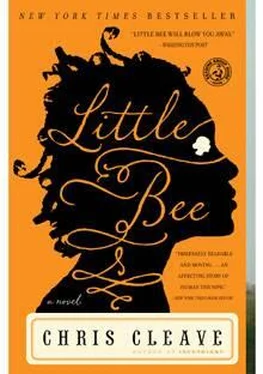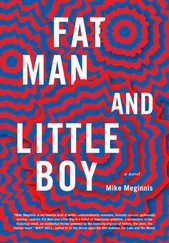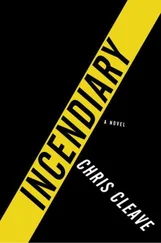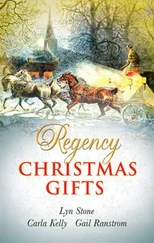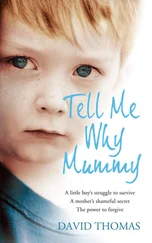Sitting with my back against the cold radiator of Charlie’s bedroom, with my knees bunched up under a duvet, I tried to remember what I saw in Lawrence. I finished my G &T and winced at the taste of the ersatz lemon. It was a small problem to have: a lack of real lemons. It was almost a comfort. I come from a family whose problems were always small and surmountable.
We didn’t have extramarital affairs in my family. Mummy and Daddy loved each other very much, or else they had hired failed actors to play the role of affable lovebirds in our family home, for twenty-five years, and then kept those actors on a retainer so that they could be summoned back at the drop of a hat whenever one of their clients’ offspring threatened a weekend visit home from university, or a Sunday-lunch-with-parents-and-boyfriend. In my family we took our holidays in Devon and our partners for life. I wondered how it was that I had broken the mold.
I looked over at my son, asleep under his duvet, motionless and pale in his Batman costume. I listened to the sound of his breathing, regular and solid and utterly asleep. I couldn’t remember sleeping like that, not since I married Andrew. Within the first month, I’d known he wasn’t the right man. After that, it’s the growing sense of dissatisfaction that keeps one awake at night. The brain refusing to let go of those alternative lives that might have been. It isn’t the strong sleepers who sleep around.
But I was a happy child, at least, and my name was Sarah Summers. I still use Summers as my professional name, but personally it is lost. As a girl I liked what all girls like: pink plastic bracelets and later silver ones; a few practice boyfriends and then, in no particular hurry, men. England was made of dawn mists that rose to the horse’s shoulder, of cakes cooled on wire trays for the cutting, of soft awakenings. My first real choice was what to take at university. My teachers all said I should study law, so naturally I chose journalism. I met Andrew O’Rourke when we were both working on a London evening paper. Ours seemed to perfectly express the spirit of the city. Thirty-one pages of celebrity goings-on about town, and one page of news from the world which existed beyond London’s orbital motorway-the paper offered it up as a sort of memento mori.
London was fun. Men blew through like tall ships, some of them already wrecked. I liked Andrew because he wasn’t like the rest. Maybe it was his Irish blood, but he wouldn’t let himself be carried along. Andrew was the foreign-news editor at the paper, which was a bit like being the wheels on a boat. He was fired for sheer obstinacy and I took him home to meet my parents. Then I took his name so that no one else could have it.
O’Rourke is a sharp name and I imagined my happiness would soften it. But as Sarah O’Rourke I lost the habit of happiness. In its place came a sense of amazed separation. The marriage was all so sudden. I suppose if I’d stopped to think about it, I would have realized that Andrew was too like me-that we were as stubborn as each other; that our admiration would inevitably become attrition. The only reason we were married in such haste was that my mother begged me not to marry Andrew at all. One of you in a marriage has to be soft, she said. One of you has to know how to say, Have it your way. That’s not going to be you, dear, so it might as well be the man.
Taking Andrew O’Rourke’s name was the second real decision of my life, and it was wrong. I suppose Little Bee would understand me. As soon as we let go of our real names, she and I, we were lost.
Ask her to leave, Lawrence had said. But no, no, I couldn’t. We were joined by what had happened on the beach. Getting rid of her would be like losing a part of me. It would be like shedding a finger, or a name. I wasn’t going to let that happen again. I sat on the floor and watched my son sleeping peacefully. I did envy him for being able to sleep like that.
I didn’t sleep at all, not for an entire week, after Africa. The killers just walked away down the beach, and Andrew and I walked back to the hotel compound, in silence, and set about packing up our things after an agonizing half hour with the compound doctor, who packed the stump of my finger with gauze and wrapped it up tightly. I was in a daze. I remember on the flight home to London that it vaguely surprised me, just as it had at the end of my childhood, that such a big story could simply continue without me. But that is the way it is with killers, I suppose. What is the end of all innocence for you is just another Tuesday morning for them, and they walk off back to their planet of death giving no more thought to the world of the living than we would give to any other tourist destination: a place to be briefly visited and returned from with souvenirs and a haunting sensation that we could have paid less for them.
On the plane home I held my injured hand high, where it throbbed less painfully. Through the fog of painkillers, its approach unseen and unexpected, the thought presented itself to me that it would be sensible not to let Andrew touch my injury, then or ever again. In my mind I watched the killers taking Little Bee and Kindness along the beach. I watched them disappear. I watched them pass over the horizon of my world into that dangerous country in my mind where I lay awake at night, thinking of the things those men might have done to them.
It never faded. But I went back to the magazine. Starting Nixie had been the third real decision of my life, and I refused ever to regret it. Nor was I going to give up on decision four-Charlie, my best decision of all-or decision five, Lawrence, who I had truly meant to renounce until the horror of Nigeria made me realize that was unnecessary. I threw myself into making my life work, and I forced myself to let the beach seem distant and impersonal. There was trouble in Africa, of course there was. But there was no sense getting hung up about one particular incident and missing the big picture. Lawrence insisted on that, and for once I took his advice. I set up direct debits from my bank account to a couple of African charities. When people asked what had happened to my finger, I said that Andrew and I had hired a scooter out there and been involved in a minor accident. My soul entered a kind of suspended animation. At home I was calm. At work I was the boss. At night I did not sleep, but I thought I could probably make the days work indefinitely.
But now I stood up from the floor of Charlie’s room. I went to look at myself again in the mirror. There were bags under my eyes now, and sharp new lines across my forehead. The mask was finally cracking. I thought, This isn’t about the decisions you made anymore. Because the biggest thing in your life, the thing that killed Andrew and the thing that means you can’t sleep, is something that happened without you.
I realized, more than anything, that I needed to know now. I needed to know what had happened after the killers took those girls away down the beach. I needed to know what had happened next.
I WOKE UP ON Sarah’s sofa. At first I did not know where I was. I had to open my eyes and look all around me. There were cushions on the sofa and they were made of orange silk. The cushions had birds and flowers embroidered on them. The sun was coming in through the windows, and these windows had curtains that reached all the way down to the floor. They were made of orange velvet. There was a coffee table with a glass top, so thick that it looked green from the side. On the shelf underneath the tabletop there were magazines. One was about fashion and one was concerned with how to make the home more beautiful. I sat up and put my feet on the floor. The floor was covered with wood.
If I was telling this story to the girls back home they would be asking me, How can a table be made of coffee and what is this thing called velvet and how come that woman you were staying with did not keep her wood in a pile at the side of the house like everybody else? How come she left it lying all over her floor, was she very lazy? And I would have to tell them: a coffee table is not made out of coffee, and velvet is a fabric as soft as the underside of infant clouds, and the wood on Sarah’s floor was not firewood, it was a SWEDISH-ENGINEERED FLOOR WITH THREE-STRIP ANTIQUE LACQUER AND MINIMUM 3MM REAL WOOD VENEER CERTIFIED BY THE FOREST STEWARDSHIP COUNCIL (FSC) AS BEING MANUFACTURED USING ETHICAL FORESTRY PRACTICES, and I know this because I saw a floor just like it advertised in the magazine that was underneath the coffee table and which concerned beautiful homes. And the girls from back home, their eyes would go wide and they would say, Weh, because now they would understand that I had finally arrived in a place beyond the end of the world-a place where wood was made by machines-and they would be wondering what sorcery I survived next.
Читать дальше
